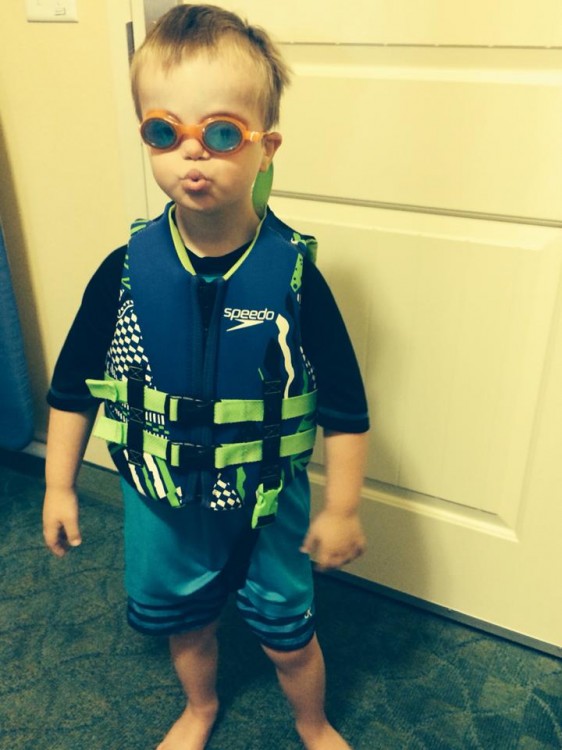My family lives in an uptown neighborhood of Chicago and the area is among the most diverse in the city. Go for a walk in uptown and in an hour you’ll pass both Buddhist monks walking in silence and women in African garb, laughing and calling to each other as they leave church on Sunday morning. Open the door to Starbucks and hear a multiplicity of languages. Walk by renovated Victorians, condominiums, public housing, community homes for the mentally ill, and tents that serve as homes to people who are otherwise homeless.
The community faces many issues, but the diversity is amazing. Coming from a small, rural, homogeneous town and growing up to be an out lesbian, I place a high premium on surrounding myself with differentness. I originally moved to Chicago looking for sameness in a city with a large LGBTQIA community, but have stayed because I love being part of a place with so much diversity.
So seven years ago, when my son was born with Down syndrome, I had many worries – about his health, his education and his adult future. I did not, however, concern myself with the fact that he is and would be different from both me and his peers in some very distinct ways. But, to my surprise and sometimes my consternation, I often experience the Down syndrome community as a place where differentness is minimized. This is embodied in a the often used assurance to people outside of our community that people like my son are “more alike than different.”
In some ways, I appreciate the intent of the slogan. We all, regardless of our differences, live on a communal plain. I can easily and accurately describe my son in terms that any mother of a 7-year-old might use. My boy loves his mamas, his cat and dog, and the circle of people who comprise his chosen family. He likes music and ball games but is less enamored with the complexities of learning addition. He is scared of doctors. He puts a great deal of energy into skirting the rules we set up to govern our home life.
I do see the importance of his peers understanding him in this light and in seeing commonalities that can form the basis of a friendship. As such, my concern with “more alike the different” has nothing to do with its intent to encourage people to see part of themselves in others. Rather, I dislike the juxtaposition of “alike” and “different,” as if one (alike) is desirable and the other (different) is a negative.
I love different.
Exposure to people with differences is critical to a child developing a broad world view. Different is interesting and adventurous.
Let me describe my son again, this time in terms that the mother of a typical 7-year-old might not relate to. My son has only been potty trained for two months. He needs one-to-one help to manage his school day. He has a spoken vocabulary of less than 50 words.
He lives his life in the moment. He doesn’t label days as being “good” or “bad,” each is a mixture of both, and he makes the most of whatever a given day presents to him.
He has no desire for materialism. He has never asked me to buy him something from the store. He is not jealous of what other children have, only curious.
He makes no judgments of other people. When we walk around our neighborhood he does not discriminate between a person dressed in business attire and one who is filthy from having nowhere to wash their clothes.
Too many people outside of the Down syndrome community see my son only in terms of the differences that are also challenges. I believe this is why so many people trumpet the notion of “more alike than different” – it’s an attempt to quash the stereotype that people with Down syndrome are nothing but amalgamations of inabilities and challenges.
But if I opt out of acknowledging the “different” aspects of my son, I am also ignoring essential positive pieces of his identify. I am discarding the valuable lessons my son has taught me and am also then discouraging others from taking a broad view of what it means to be different.
“Different” doesn’t mean “less than.”
“Different” means that my son has a unique life perspective that has value to people willing and lucky enough to get to know him. He has characteristics worth emulating and challenges that can be eased with empathy. Parsing his identity into ways he is similar and dissimilar to his peers only reduces who he is. Instead of providing unneeded assurances that he is “more alike than different,” I strive to encourage others to take the time to get to know the whole person, to bond over attributes they share with him and to both learn and teach across the differences.
Want to end the stigma around disability? Like us on Facebook.
And sign up for what we hope will be your favorite thing to read at night.

